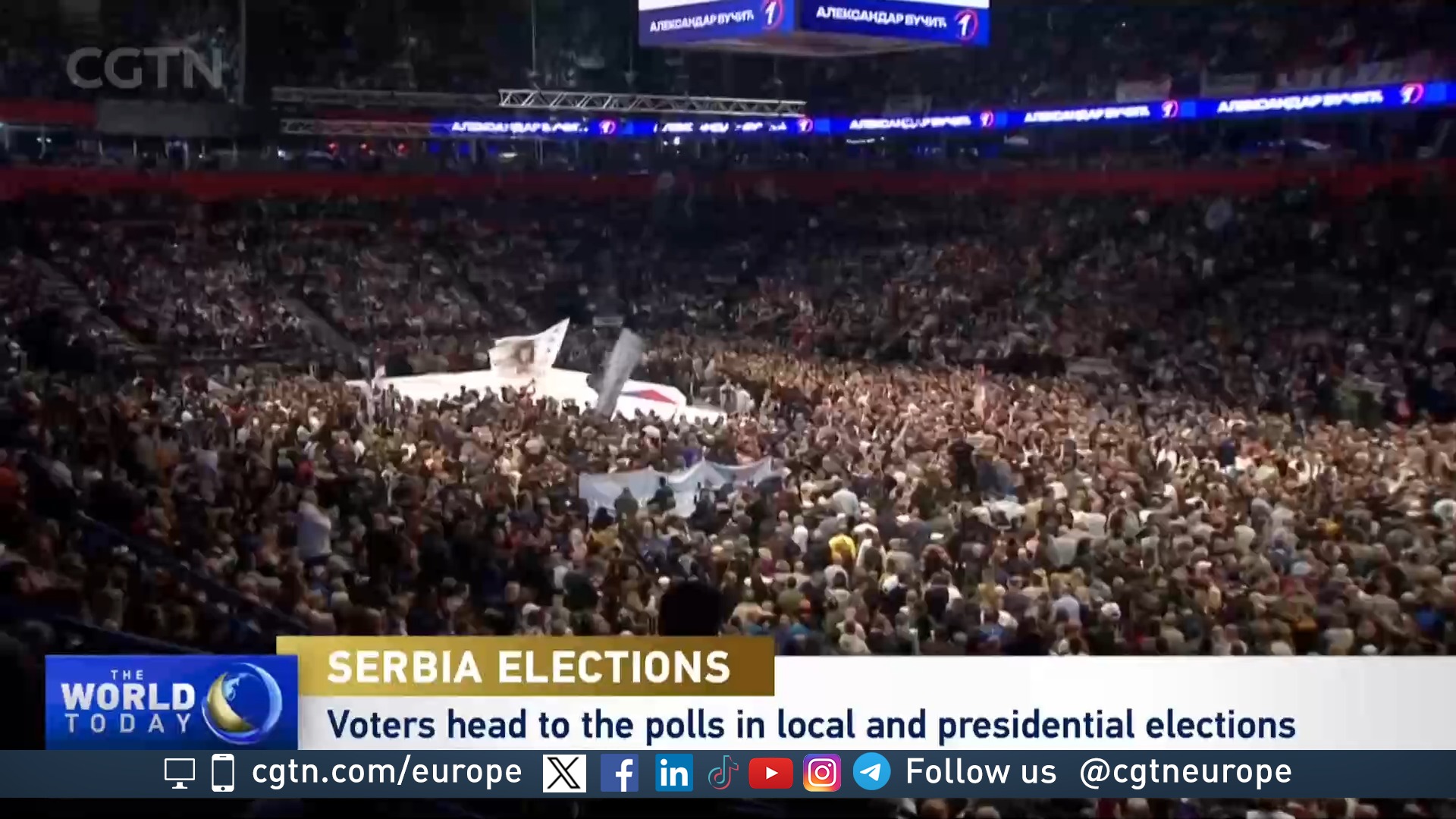02:19

Serbia is set to vote for a new parliament and local authorities on Sunday. The country's president, Aleksandar Vucic, called for snap elections as part of the ruling coalition offer to the opposition given about a year and a half ago.
Just a couple of weeks ago, Belgrade saw a mass rally of the supporters of Serbian Progressive Party (SNS), Serbia's largest political party. The SNS has ruled Serbia for the past 11 years, with its long-time leader Vucic, serving as either the prime minister or the president for nine years.
READ MORE
Latest Israel strikes kill dozens as U.S. urges ally to scale down
Lost and Found: Difficult road ahead for boy who went missing
Rising number of Swiss farms switch from livestock to plants
Vucic resigned from the presidency of the party earlier this year but he still came to the rally to show his support. And as the opinion polls suggest, the SNS's top spot in Serbia's politics would hardly be challenged at these elections.
The main political battles would actually be at the local levels, where the opposition would try to oust the SNS from the ruling seats. Belgrade is seen as the ultimate prize in that battle. It is in the Serbian capital that the opposition brought the most people to the streets to protest against the government's policies.

Leaders of the opposition coalition 'Serbia Against Violence,' attended a rally in Belgrade before the elections. /Marko Djurica/Reuters
Leaders of the opposition coalition 'Serbia Against Violence,' attended a rally in Belgrade before the elections. /Marko Djurica/Reuters
A balancing act
But the opposition is fragmented and has failed to create a unified front against the SNS. Back in the Serbian parliament building, CGTN met with the leader of one opposition party Dveri, which is seen as a rising political star in Serbia. Some polls show the party is likely to become the third-largest political power in the country.
"Our government, unfortunately, is too pro-western, and fulfils the orders from Brussels and Washington far too often," said Bosko Obradovic, the leader of Dveri. "We, above all, insist on rejecting the Franco-German ultimatum on recognizing the fake state of Kosovo. We are loud and clear against sanctions on Russia and Serbia's NATO membership, and we want the expansion of good cooperation with the People's Republic of China," he added.
The SNS, on the other hand, rejects the accusations put forward by the opposition. Nemanja Starovic, a member of the SNS Presidency, insists that Serbia is experiencing unprecedented economic prosperity under their leadership and that their foreign policies are pragmatic.
"The challenge that we are also facing is that we must properly balance our politics and not fully antagonize or treat the European Union as an adversary," Starovic said. "That would be foolish, having in mind our geographical location and the huge dependency, mostly in economic terms, that we have with the European Union."
The preliminary results of the elections will start arriving just hours after the voting is finished. And by midnight on Sunday in Serbia, it will become clear whether Serbia has chosen to continue with the status quo or make a political shift.

Subscribe to Storyboard: A weekly newsletter bringing you the best of CGTN every Friday